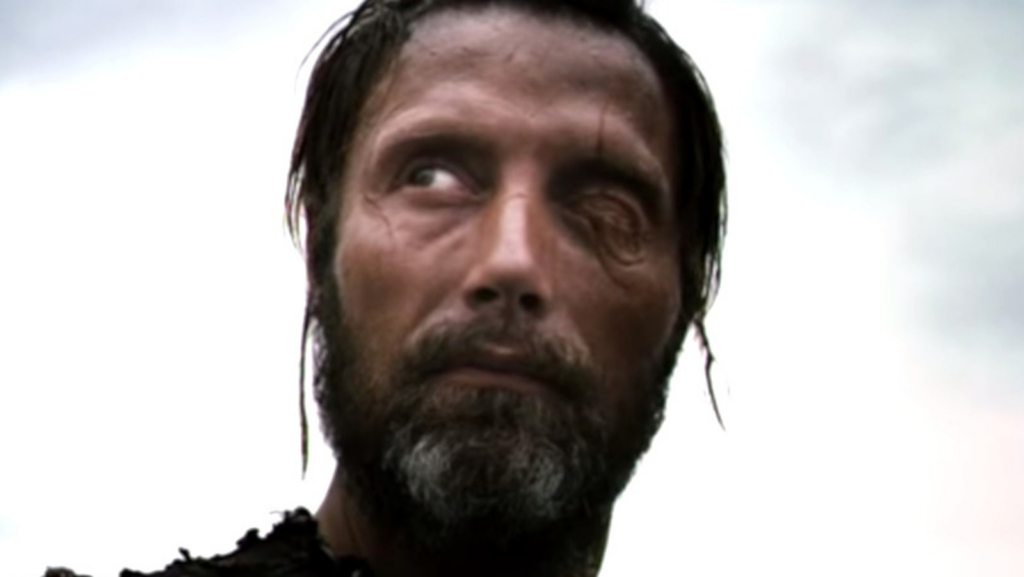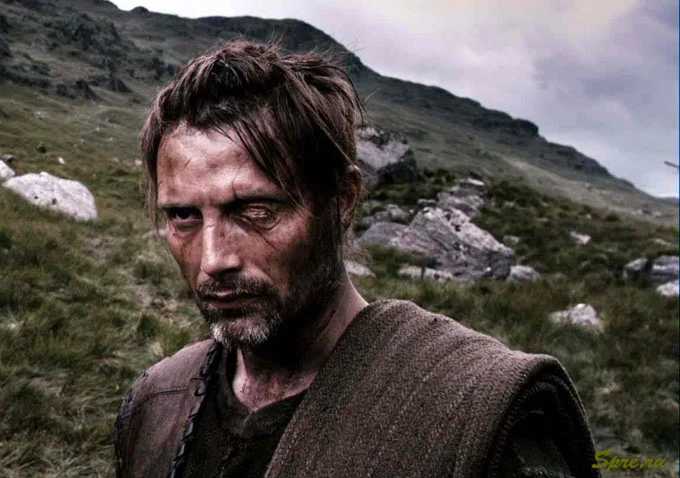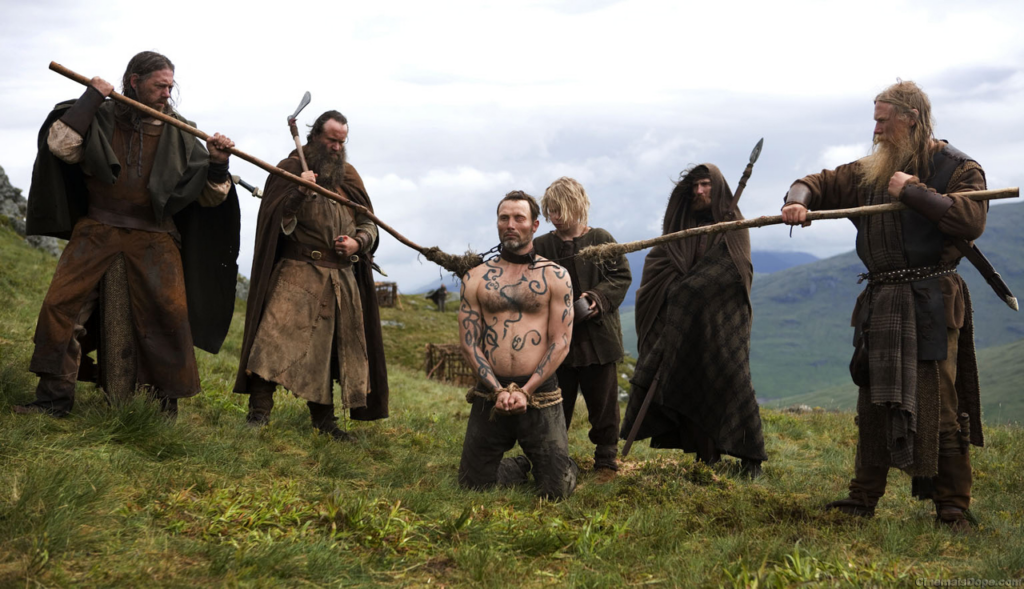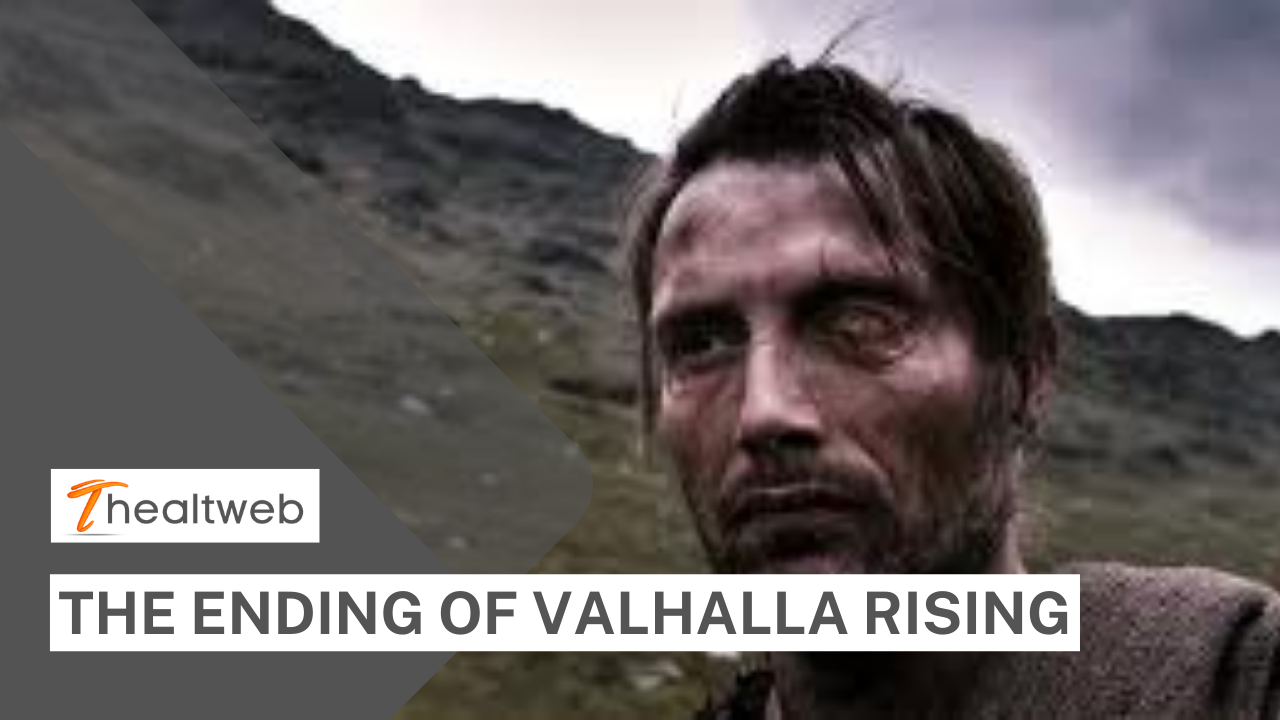The 2009 movie “Valhalla Rising” was a turning point for both Mads Mikkelsen, who played the lead role and director Nicholas Winding Refn. Although Mikkelsen had acted in the James Bond movie “Casino Royale” and Refn had already directed “Bronson” with Tom Hardy, “Valhalla Rising” solidified their status as significant directors in the eyes of English-speaking moviegoers outside of their own Denmark. The movie is a visual spectacular with almost little conversation from the lead actor, Mads Mikkelsen. This frequently leaves many spectators, even those who have loved the movie, perplexed about what it all means, particularly the finale.
Related – Ending of The Skeleton Key – EXPLAINED
Hopefully, this essay might be of some assistance.
One Eye, played by Mikkelsen, is a skilled Norse warrior who became a slave. Together with a little kid (Maarten Stevenson), who had been enslaved with him, they murder their captors and escape their bindings. The two boarded a ship with a group of Norse missionaries who are preparing to travel to the Holy Land and take part in the Crusades. They eventually find themselves in North America, where they are ambushed by Native warriors, after becoming hopelessly lost in the murky North Atlantic.
More than simply a guy, One Eye
One Eye appears to possess special fighting abilities, as well as the ability to prophecy because he frequently dreams and sees events coming in the movie. At the end of the film, he is entirely unsurprised by the presence of the Native Americans and his death at their hands. His vision of an arrowhead leads him to discover the weapon that facilitates his escape from slavery. Another vision also prompts him and the youngster to embark on a sea adventure. But as they kill him, his serene face appears in the misty sky.

Although Nicholas Winding Refn has never explicitly said who One Eye appears to be, viewers who are familiar with Norse mythology will be able to infer very quickly. In spite of this, it’s quite evident that One Eye is actually Odin, the one-eyed Norse God of battle, insight, prophecy, and the sky. Odin gave up his eye in exchange for wisdom, giving him the ability to predict the future, exactly like One Eye in the film. He was also renowned for appearing as a person and traversing the Earth; this appears to be what he is doing in this tale.
He is only understood by the Boy.
One Eye, a pagan god in human form, has little regard for the Christian missionaries, killing or allowing the majority of them to perish during the course of the movie. The boy, however, is unique to him and is protected by him since he is a pagan (i.e., an adherent of Odin).

He even gives his life (at least in this specific human form) for the youngster at the conclusion of the movie after the Native warriors leave One Eye dead. The youngster appears to comprehend One Eye’s ideas and intents at several points during the film, despite the fact that Mikkelsen never says a word aloud or even in sign language. After all, gods are known to communicate with people in this manner: inaudibly, within their heads.
It’s kind of irrelevant if the boy realizes who One Eye really is. In any case, he is in awe of this strong individual who stands guard over him. Even if they lived longer, the Christian characters would find it difficult to convert the youngster since his own deity is much more deeply engaged in his life than theirs is.

One Eye passes away but endures
One Eye’s appearance in the sky might signify Odin’s journey back to Valhalla, his celestial mead hall where he partakes with the revered dead (hence the title of the movie). The movie also gives off the impression that Odin’s time is running out. For better or worse, we know that the Christians will mostly prevail in the future, no matter how unprepared they look at the time of this novel.
Related – The Ending Of The Departed – EXPLAINED!
Much if you just read One Eye as a human pagan who just so happens to have the same number of eyes as Odin, these themes are very obvious in the movie, but if you regard him as the deity himself, the plot becomes even more obvious. Furthermore, “One Eye” is one of Odin’s numerous monikers, so Refn and Roy Jacobson had to be aware of this while they were writing the script.

